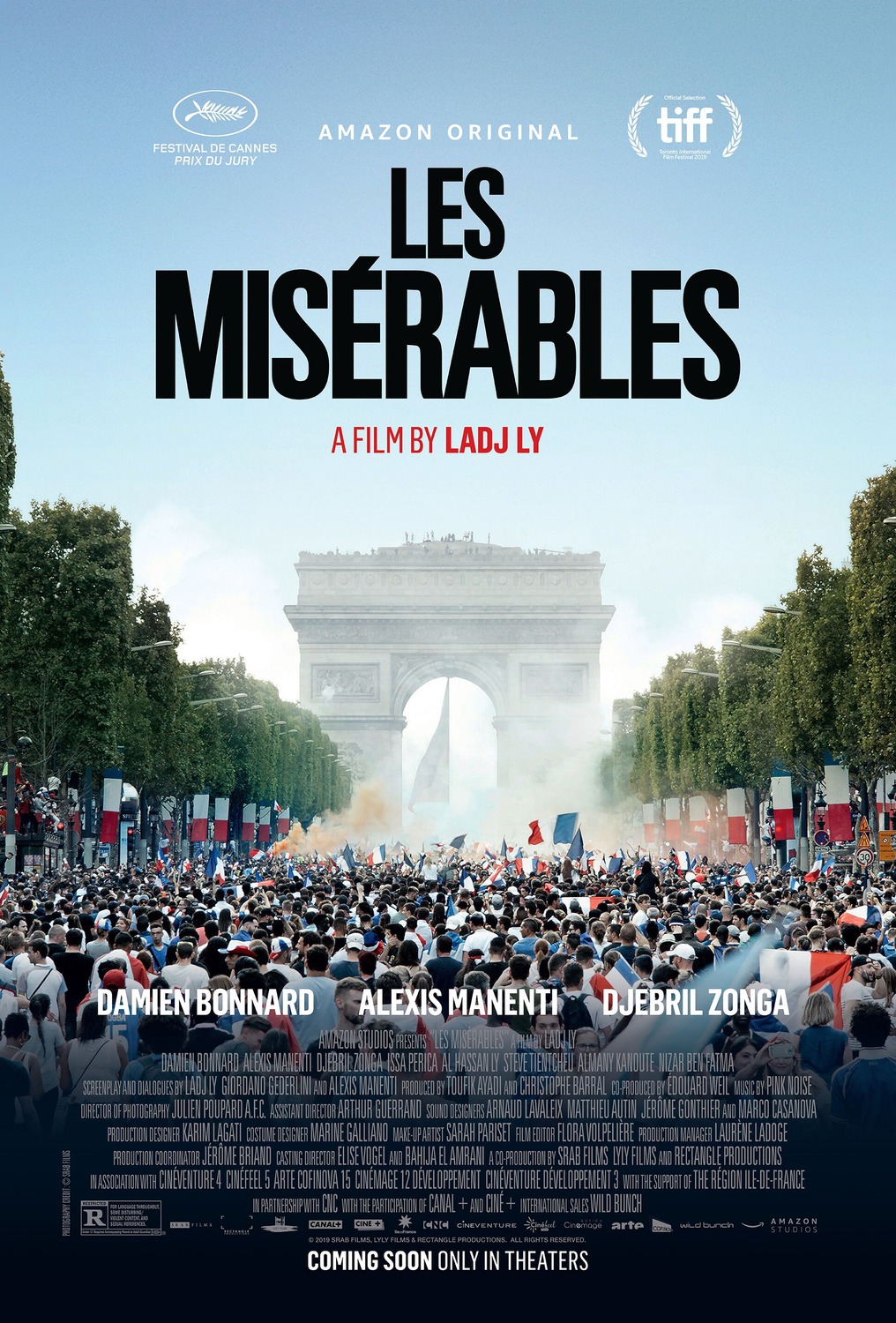Fear not. French filmmaker Ladj Ly’s first feature is not another remake of Victor Hugo’s sprawling novel or its long-running, mawkish musical. What the they do share, though, is a location (the Parisian slums of Montfermeil) and a spirit (authority, bad—hoi polloi, good) that perfectly brings the classic tome to mind.
Playing like a contemporary (and French) mash-up of 1989’s Do the Right Thing and 2001’s Training Day, Les Misérables brings with it all the inherent undercurrents of a steamy French afternoon in run-down tenements overrun by poverty and misery. It’s inescapable that someone somewhere is gonna get into trouble before the sun goes down, taking the entire neighborhood down with him—we’re just meant to watch it unfold as a perfect storm of crap begins swirling around everyone’s feet.
It’s the first day on the job for recent transfer police corporal Stéphane Ruiz (Damien Bonnard), the newest member of Paris’ Street Crime Unit (SCU). He barely sits down before getting hazed by his hard-nosed bully of a colleague, Chris (Alexis Manenti), and the (comparatively) mild-mannered Gwada (Djebril Zonga). Then, after stopping off to harass a group of local teenage girls (because why not), the trio continues the neighborhood rounds, painting a clear picture for Ruiz while barely saying a word to him—in Montfermeil, it’s all about who you know. Or, more aptly, who you owe and who owes you.
In one subdivision, “The Mayor” (Steve Tientcheu) is running things, while a few blocks over, the Muslim Brotherhood, led by Salah (Almamy Kanoute), is calling the shots. This, naturally, leaves Chris and Gwada (and, now, Ruiz) with nothing to do but bounce around in a vain attempt to keep the peace, even as they seem to find so much joy in stirring the pot themselves.
The first escalation comes when a band of local Gypsies accuses one of The Mayor’s neighborhood kids with stealing a lion cub from their traveling circus. The SCU hops on the case, eventually finding the underage culprit, but when the ensuing arrest goes horribly wrong and, even worse, is captured on drone video by a local kid, all hell begins to break loose.
Winner of the Jury Prize at last summer’s Cannes Film Festival and France’s submission to the Oscars, Les Misérables is an expertly-crafted slow-burn of a film, rife with tension and angst, before eventually erupting in a violent fury that Victor Hugo could never have even contemplated. Ly, who also co-wrote the script, tosses us all into the midst of the fray, giving the film a documentary-esque look that only heightens the immediacy and realism.
Without any spoilers, it does bear mentioning, though, that the polarizing ending may undercut the film’s impact—it’s a conclusion that, for me, is still very much up in the air. After a satisfactory denouement that leaves us to reconcile the day’s events, a tacked-on violent epilogue (which ends with an appropriate quote from Hugo’s famous novel) seems—at first glance, anyway—too in-your-face and obvious for a film that had, until that point, relied on the audience’s own frontal lobe to connect the dots and imagine the aftermath.
Regardless, there’s no denying the ultimate amount of brute force with which Les Misérables assaults your senses on its way to emerging as one of the finer films of the year. It’s powerful but nuanced and explicitly provincial but with a global message—an age-old story for our modern times and brilliantly told.
Rating
4.5/5 stars
